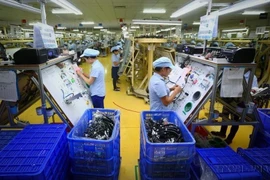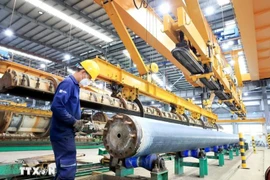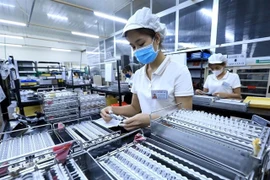Hanoi (VNS/VNA) - Reducing red tape in the construction sector is expected to create a more transparent, efficient and business-friendly environment, according to experts.
For years, complex administrative procedures, particularly the process of obtaining construction permits, have posed a significant hurdle for businesses in Vietnam.
Ranging from overlapping regulations to prolonged approval timelines, these barriers have not only delayed project implementation but also eroded investor confidence and increased operational costs.
Now, however, the Ministry of Construction (MoC) is advancing a plan to reduce administrative procedures for projects that have already secured 1/500 detailed planning approval. This move is part of a broader effort to reform regulatory processes in the construction sector.
Obtaining construction permits has long been a daunting task for developers.
According to Chairman of the Binh Duong Provincial Business Federation Mai Huu Tin, enterprises now are forced to seek permission for even minor projects.
Le Huu Nghia, Director of Le Thanh Company, which specialises in social housing development, stressed the inefficiency of having to re-verify planning compliance at multiple stages, including feasibility studies, planning assessments, and applying for construction permits.
These inefficiencies are not limited to housing projects. General Director of Dai Dung Company Trinh Tien Dung said that it can take up to 18 months to secure a licence for factory construction in industrial parks, which is often longer than the construction phase itself, causing businesses to incur unnecessary financial and operational risks.
Beyond delays and cost burdens, businesses often face inconsistent procedures across provinces, unclear approval criteria and unofficial costs.
Trang Bui, General Director of Cushman & Wakefield Vietnam, noted that such inconsistencies force enterprises to resubmit applications multiple times, endure unwarranted delays, and make repeated project adjustments.
Removing the construction permit requirement is more than a procedural update — it could be a game-changer. If implemented effectively, the reform would significantly improve Vietnam’s investment environment, especially in real estate and manufacturing.
Trang Bui emphasised that scrapping the permit process could accelerate project timelines, reduce borrowing costs, and improve capital utilisation.
It would also allow developers to take more initiative in project execution, choosing contractors, and managing progress in alignment with regulatory standards rather than navigating bureaucratic obstacles.
CEO of Sen Vang Company Nguyen Thi Bich Ngoc estimated that eliminating the construction permit requirement could reduce project preparation time by 3-6 months and cut investment costs by up to 5%, largely by removing administrative expenses and minimising delays.
Ngoc said that businesses would, in turn, need to invest more in internal controls and quality assurance.
The State’s role remains critical in this transformation. Publicising planning data, digitising administrative workflows and establishing a centralised post-audit system are essential for enforcing standards and maintaining public trust.
Giang Huynh, director of research and S22M at Savills HCM City, stated that reducing procedural burdens can help businesses optimise operations, bring products to market faster, and make more efficient use of resources.
She stressed that digitalisation, data transparency and robust audit mechanisms must accompany the reforms to ensure lasting impact.
In addition to permit reform, the Government must address underlying challenges in land use planning, land valuation and zoning regulations — long-standing bottlenecks for project development.
As the Government moves forward with this initiative, the combination of procedural simplification, digital transformation and legal reform could serve as a powerful catalyst for economic growth, transparency and sustainable development in Vietnam’s construction and real estate sectors, according to the experts./.
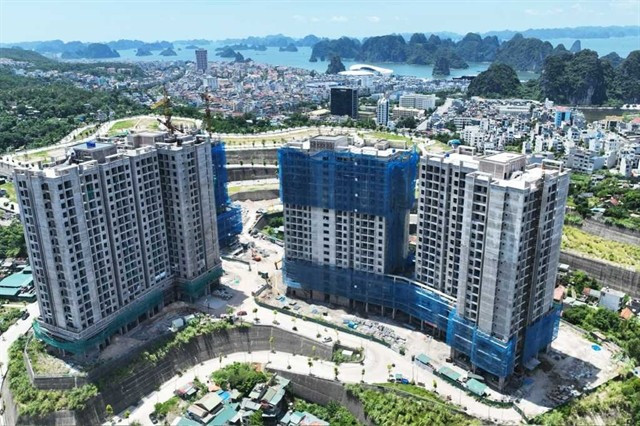
See more
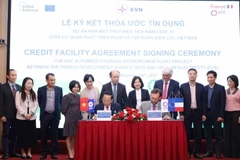
AFD provides 76-million-EUR loan for Vietnam’s first pumped-storage hydropower plant
The Bac Ai hydropower project has a designed capacity of 1,200 MW, comprising four turbines of 300 MW each, with a total investment of 21.1 trillion VND (802.5 million USD).
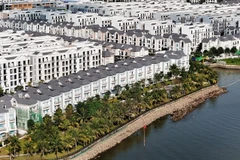
Southern housing market gains momentum on the back of growing infrastructure
Experts forecast that in 2026 a stronger shift towards outlying areas, especially projects linked to public transport and green standards, will shape product trends and developers’ strategies.

Quang Tri province tightens control to keep unqualified fishing vessels ashore
Through inspections, awareness campaigns, and the collection of vessel documentation from local fishermen, authorities aim to equip the provincial monitoring system with full data to manage all vessels and block non-compliant boats from fishing, he said.
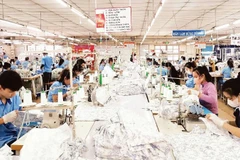
Textile, garment industry secures role in global supply chain
By diversifying markets, products and customers, the sector has mitigated risks and responded proactively to market fluctuations, despite numerous challenges such as disrupted supply chains, rising shipping costs, and rapidly changing purchasing policies in many markets.

Farm produce traceability system unveiled in push for digital agriculture
The system is a key component of agricultural digital transformation, designed to boost the value of Vietnamese produce and build greater trust among consumers at home and abroad.
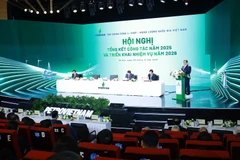
Petrovietnam tasked with six pioneering initiatives to fuel double-digit growth
Petrovietnam should also lead in adopting sci-tech, digital transformation, green transition, data infrastructure and artificial intelligence to accelerate its shift toward renewables, hydrogen, liquefied natural gas, nuclear power and offshore wind.

Vietnam Mobility Show 2025 opens in Hanoi
Taking place at a time when Vietnam’s automobile industry is undergoing strong transformation towards electrification and emission reduction, the show aims to introduce advanced technologies, eco-friendly vehicles, and sustainable mobility models.

Agriculture-environment sector maintains stable growth in 2025 amid global volatility: Minister
Despite mounting global uncertainties and increasingly severe climate impacts, Vietnam’s agriculture and environment sector maintained stable growth in 2025, reinforcing its role as a key pillar of the economy while advancing green transformation and strengthening resilience to natural disasters, said Minister of Agriculture and Environment Tran Duc Thang.
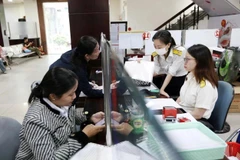
Millions set to benefit from personal income tax reduction from 2026
Under the amended Law on Personnal Income Tax, the personal deduction will rise to 15.5 million VND (590 USD) per month from 11 million VND at present. Taxpayers are also entitled to mandatory insurance deductions and contributions to charity and humanitarian funds.

Hanoi shopping festival 2025 opens to boost domestic consumption
Featuring around 120 standard booths, the festival has attracted nearly 110 enterprises from 14 provinces and cities nationwide, including Dien Bien, Lao Cai, Son La, Ninh Binh, Thai Nguyen, Quang Ninh, Hai Phong, Bac Ninh, Hung Yen, Hanoi, Thanh Hoa, Da Nang, Ho Chi Minh City and Khanh Hoa.
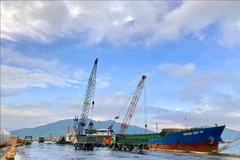
Large room for Vietnam to achieve two-digit economic growth: Experts
The restructuring of the economy, particularly public investment, along with the financial and banking systems, has been identified as a critical solution to achieving double-digit growth in the next development phase.
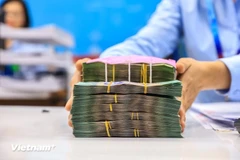
Reference exchange rate going down on December 26
The State Bank of Vietnam set the daily reference exchange rate at 25,128 VND/USD on December 26, down 5 VND from the previous day.

Digital economy – driver for Vietnam’s breakthrough in new development phase
The digital economy is establishing itself as a pillar of Vietnam’s development process as it is expected to reach about 39 billion USD in 2025 and boasts one of the fastest growth rates in Southeast Asia.
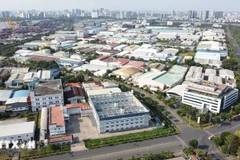
HCM City posts 24% rise in registered FDI in 2025
As of December 31, Ho Chi Minh City is expected to continue leading the nation in valid FDI capital and project numbers, with total registered capital standing at 141.9 billion USD across 20,310 projects.

Dak Lak province intensifies fight against IUU fishing
Sen. Lieut. Nguyen Tien Khanh, from Hoa Hiep Nam border guard station, reported that fishermen now show a much stronger grasp of fisheries rules and exactly what compliance demands from their day-to-day operations. That heightened awareness is paying off, intensifying local crackdowns on IUU practices and preparing for the upcoming European Commission (EC)'s 5th inspection round.
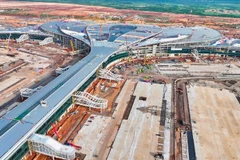
Long Thanh int'l airport expected to help boost growth of southern key economic region
Economic experts noted that as Vietnam’s largest aviation hub and a symbol of international integration, Long Thanh will significantly enhance foreign direct investment inflows into Dong Nai and the southern region.

Vietnam steps up anti-money laundering vigilance amid rising digital assets
Since the Anti-Money Laundering Law was enacted in 2022, the Anti-Money Laundering Department has received thousands of suspicious transaction reports (STRs) annually, with the number of reports growing by about 30% each year. Since 2023, based on these reports, the department has collected and analysed information, issuing nearly 600 documents related to over 5,000 STRs.

Credit management must ensure high GDP growth, macroeconomic stability: Experts
Credit management should be cautious and effective to enable linking high economic growth with macroeconomic stability and financial system reforms.
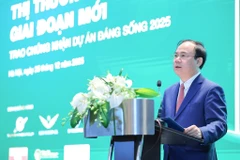
Property market anticipated to stabilise as legal bottlenecks addressed: Forum
Real estate projects in Vietnam that have been delayed by regulatory obstacles will gradually see their difficulties resolved, helping to increase market supply and unlock resources for development, Deputy Minister of Construction Nguyen Van Sinh has said.
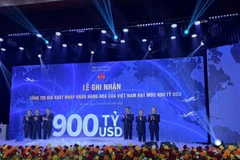
Vietnam’s trade turnover tops 900 billion USD for first time
Vietnam's total trade in 2025 reached about 920 billion USD, up 16.9% year on year. Of the total, exports were valued at 470.59 billion USD, a year-on-year increase of 15.9%, while imports amounted to 449.41 billion USD, up 18%, resulting in a trade surplus of around 21.2 billion USD.
